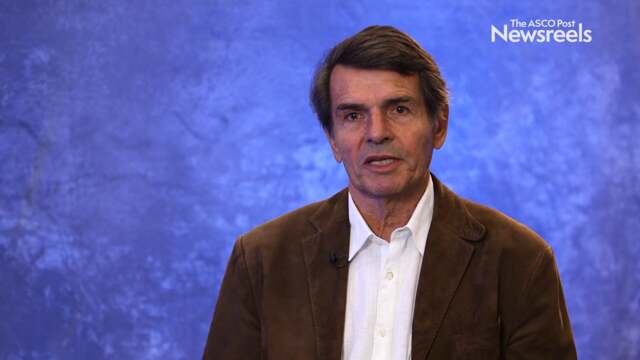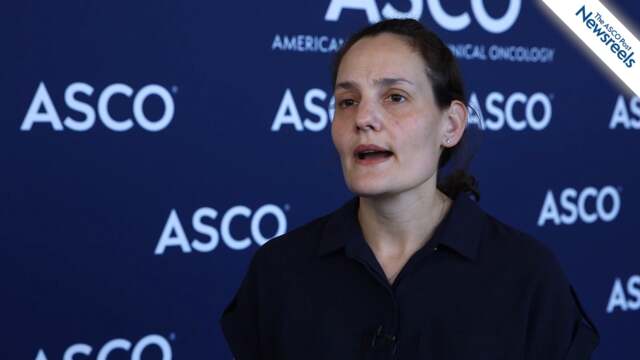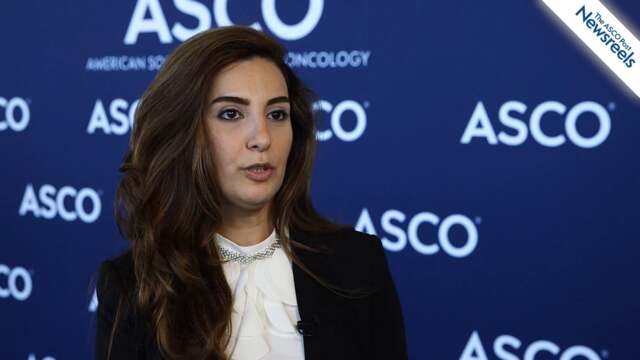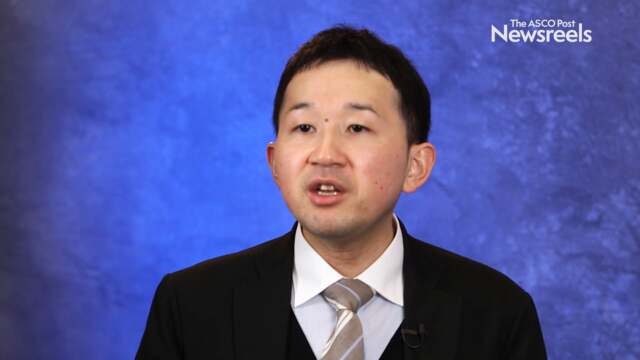Lee S. Schwartzberg, MD, on Using Immunotherapy in the Community Setting: 2018 Update on an ACCC Program
2018 ASCO Annual Meeting
Lee S. Schwartzberg, MD, of West Cancer Center, reports on the progress of the ACCC Immuno-Oncology Institute to speed adoption of immunotherapeutics in community practices.
Bernard J. Escudier, MD, on RCC: Results From the IMmotion151 Trial
Bernard J. Escudier, MD, of Gustave Roussy, discusses patient-reported outcomes for atezolizumab plus bevacizumab vs sunitinib in treatment-naive metastatic renal cell carcinoma (Abstract 4511).
Aviva C. Krauss, MD, of the U.S. Food and Drug Administration, discusses findings on an FDA analysis of immune-related adverse events and response to pembrolizumab in multiple myeloma (Abstract 8008).
Rita Elias Assi, MD, of The University of Texas MD Anderson Cancer Center, discusses the impact of next-generation sequencing on treatment selection in acute myeloid leukemia (Abstract 103).
Sumanta K. Pal, MD, of the City of Hope, and Neeraj Agarwal, MD, of the Huntsman Cancer Institute, University of Utah, discuss the ongoing phase III Talapro-2 study of talazoparib with background enzalutamide in metastatic castration-resistant prostate cancer with DNA damage–repair deficiencies (Abstract TPS5091).
Naoki Furuya, MD, PhD, of the St. Marianna University School of Medicine, discusses phase III study findings on a comparison of bevacizumab plus erlotinib to erlotinib in patients with untreated non–small cell lung cancer with activating EGFR mutations (Abstract 9006).





